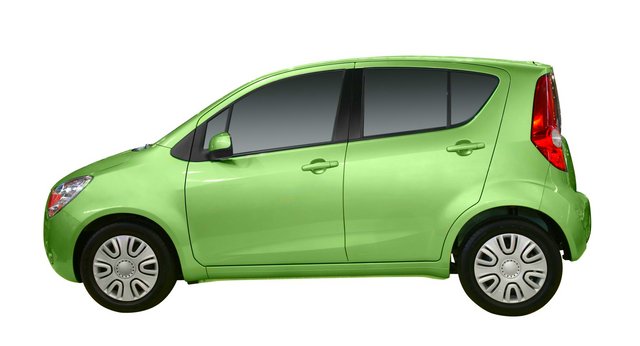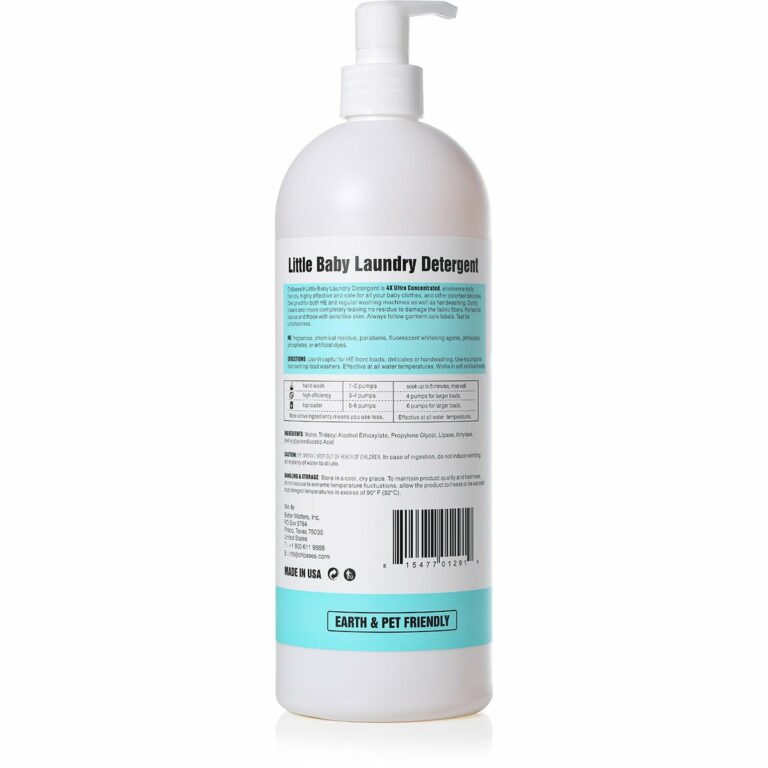Top Sustainable & Eco Friendly Clothing Brands
Searching for sustainable and eco-friendly clothing brands? You’re in the right place! In the fast-paced fashion industry, it’s crucial to prioritize our planet’s well-being. That’s why more people are choosing sustainable and eco-friendly brands for their wardrobe.
These brands offer stylish pieces while minimizing environmental impact. They use organic materials and fair labor practices, leading the way responsibly. Let’s explore this exciting world that combines style and sustainability.
Sustainable and Eco-Friendly Clothing Brands:
With climate change and environmental concerns becoming increasingly important, consumers are seeking sustainable choices in their purchases. The fashion industry is responding to this demand by offering more eco-friendly clothing brands.
The Rise of Sustainable Fashion:
Over the past decade, the fashion industry has faced increasing scrutiny for its harmful environmental practices and exploitative labor conditions.
The rise of fast fashion, characterized by quick and cheap production, has led to excessive waste, pollution, and human rights abuses.
However, in recent years, consumers have started to prioritize sustainability and ethics, leading to a surge in demand for sustainable fashion options.
The Environmental Impact of Fast Fashion:
Fast fashion refers to the rapid production and consumption of inexpensive clothing. The processes involved in fast fashion, from growing raw materials to manufacturing and distribution, have significant environmental consequences:
- Excessive water usage: Growing cotton, which is widely used in the fashion industry, requires large amounts of water. Additionally, the dyeing and finishing processes contribute to water pollution.
- Chemical pollution: The use of toxic chemicals, such as pesticides, insecticides, and dyes, in the production of conventional textiles pollutes water bodies and soil.
- Textile waste: Fast fashion encourages the disposal of clothing after only a few uses. The discarded textiles end up in landfills, where they take up space and release greenhouse gases as they decompose.
- Carbon emissions: The transportation of clothing from manufacturing facilities to retail stores and customers’ homes contributes to carbon emissions, further exacerbating climate change.
The Need for Sustainable and Eco-Friendly Clothing Brands:
Due to fast fashion’s negative impact, the fashion industry seeks change. Sustainable brands aim to reduce their environmental footprint and promote ethical practices in the supply chain. They consider various factors to ensure eco-friendly products.
- Use of organic or recycled materials: Sustainable brands prioritize the use of organic fibers, such as organic cotton and hemp, which are grown without the use of harmful chemicals. They also utilize recycled materials, such as plastic bottles or discarded fabrics, to reduce waste.
- Reduced water consumption: Eco-friendly brands implement water-saving technologies and processes, reducing the amount of water used during production.
- Non-toxic dyes and chemicals: They opt for natural or low-impact dyes that are free from harmful chemicals, minimizing pollution during the dyeing process.
- Fair labor practices: Sustainable fashion brands prioritize fair wages and safe working conditions for their employees. They often partner with factories that adhere to ethical labor standards.
- Waste reduction and recycling: These brands focus on reducing waste throughout the supply chain by implementing recycling programs or utilizing leftover fabrics to create new products.
Top Sustainable and Eco-Friendly Clothing Brands:
With the growing demand for sustainable fashion, various brands have emerged that prioritize eco-friendly practices. Here are some of the top sustainable and eco-friendly clothing brands making a positive impact in the industry:
1. Patagonia
Patagonia is a well-known outdoor apparel brand that has been a pioneer in sustainability for decades.
The company focuses on using recycled materials, reducing waste, and supporting fair labor practices. They also advocate for environmental causes and donate a portion of their profits to grassroots organizations.
2. Eileen Fisher
Eileen Fisher is a women’s clothing brand committed to sustainable and ethical practices. They prioritize organic and recycled materials, promote transparency in their supply chain, and offer a garment recycling program. Eileen Fisher also supports female artisans and invests in initiatives that empower women.
3. Reformation
Reformation is a trendy brand known for its stylish and sustainable clothing. They prioritize eco-friendly materials, such as TENCEL™ and linen, and implement water-saving technologies in their production process. Reformation also provides detailed information about the environmental impact of each garment on its website.
4. Everlane
Everlane is a brand focused on transparency and ethical manufacturing. They prioritize high-quality materials, responsible factories, and transparent pricing.
Everlane provides information about the factories they partner with and their commitment to fair wages and safe working conditions.
5. People Tree
People Tree is a pioneer in the fair trade fashion movement. They work with artisans and farmers in developing countries to create sustainable and handmade clothing.
People Tree ensures fair wages, and safe working conditions, and promotes environmentally friendly production methods.
6. Amour Vert
Amour Vert is a sustainable brand that emphasizes eco-friendly materials, such as organic cotton, TENCEL™, and recycled fibers.
They also prioritize local production to reduce carbon emissions and work with factories that adhere to ethical labor standards.
7. Thought
Thought, formerly known as Braintree Clothing, is a UK-based brand offering sustainable and ethical clothing for men and women.
They use natural materials, such as hemp, organic cotton, and bamboo, and promote slow fashion through timeless designs. Thought also supports various environmental and social initiatives.
8. Stella McCartney
Stella McCartney is a luxury fashion brand known for its commitment to sustainability and animal welfare.
They avoid the use of fur and leather, instead opting for innovative and eco-friendly materials. Stella McCartney promotes circularity by offering repair and recycling services for their products.
9. Outerknown
Outerknown is a brand founded by professional surfer Kelly Slater, committed to sustainable and ethical practices.
They prioritize organic and recycled materials, fair labor practices, and use low-impact dyes. Outerknown also aims to minimize waste by utilizing upcycled materials in their collections.
10. Organic Basics
Organic Basics is a brand focused on creating sustainable and minimalistic basics for men and women.
They prioritize organic and recycled materials, provide transparency about their supply chain, and promote circularity through recycling programs. Organic Basics also aims to reduce water consumption and carbon emissions.
THE 10 MOST AFFORDABLE SUSTAINABLE FASHION BRANDS | Vlogust
Faqs for Eco Friendly Clothing Brands:
Choosing sustainable and eco-friendly clothing brands allows you to contribute to a more sustainable fashion industry. These brands prioritize ethical and environmentally friendly practices, reducing the negative impact of fashion on the planet. By supporting these brands, you can help protect the environment, support fair labor practices, and encourage innovation towards a greener future.
To identify sustainable and eco-friendly clothing brands, look for certifications and labels such as GOTS (Global Organic Textile Standard) or Fair Trade. Additionally, research the brand’s sustainability initiatives, materials used, and transparency in their supply chain. Many brands also share information about their sustainability practices on their websites or through third-party certifications.
While it is true that sustainable and eco-friendly clothing brands might be slightly more expensive than fast fashion alternatives, the price difference often reflects the higher quality and ethical standards of these brands. However, as the demand for sustainable fashion increases, more affordable options are becoming available, making it easier to find sustainable clothing at various price points.
Sustainable and eco-friendly clothing brands commonly use organic cotton, hemp, linen, bamboo, and recycled fabrics. These materials have a lower environmental impact compared to conventional materials such as polyester or conventional cotton, which require more water, energy, and chemical inputs in their production.
Sustainable and eco-friendly clothing brands contribute to a circular economy by promoting the reuse, recycling, and upcycling of clothing. They encourage customers to repair and mend garments, offer take-back programs, and incorporate sustainable practices throughout the entire lifecycle of their products. By prioritizing circularity, these brands aim to reduce waste and extend the lifespan of clothing items.
Final Thoughts
Sustainable and eco-friendly clothing brands tackle the fashion industry’s environmental challenges. They use ethical practices and eco-friendly materials to reduce their carbon footprint and promote responsible consumption. These brands prioritize transparency and fair trade, ensuring a positive impact on supply chains. With sustainable production methods, they drive innovation and inspire change in the industry. Supporting these brands allows consumers to contribute to an environmentally conscious and socially responsible future.




